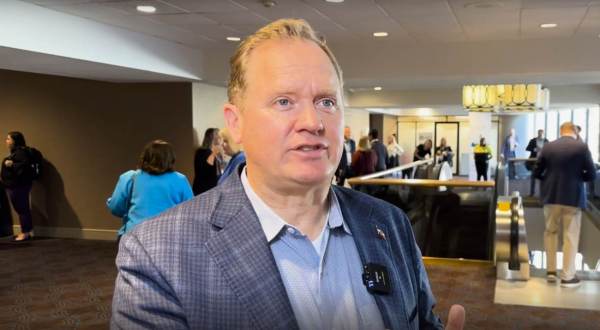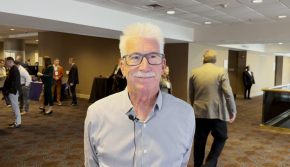- Sponsored
How states are navigating the move to mobile driver’s licenses
Mobile driver’s licenses (mDLs) are rapidly gaining attention as states explore how to implement digital IDs, offering new opportunities and challenges for motor vehicle departments. The effort is massive but necessary in a state like California, which services 34 million licenses and identity cards for 31 million unique identities and issues 9 million cards annually.
“We want to create a digital credential that bridges the gap between the physical and digital world, ensuring security and convenience,” says California Department of Motor Vehicles Chief Digital Transformation Officer Ajay Gupta in a new video interview.
Gupta further explains the benefits of mDLs, emphasizing their potential to reduce fraud and streamline verification processes. “Physical cards are easy to fake, and digital verification is costly,” he says. “Mobile licenses provide a more secure, convenient way to verify identity online and in person, utilizing the high-tech features of modern smartphones.”
California is also actively developing use cases beyond air travel, aiming for an inclusive approach that serves all residents. “We are working with airports, convenience stores and law enforcement to expand the use of mobile licenses,” says Gupta. “Our ultimate goal is to create a product that allows residents to go plastic-free.”
Christine Halverson, Public Sector Chief Technology Officer at Okta, underscores the importance of security when it comes to mobile driver’s licenses. “Building security from day one is critical,” she says. “Our role as an identity broker helps states ensure secure, frictionless user experiences, improving trust and accessibility.”
Halverson also points out the challenges states face in developing mDL systems, noting that success requires strong collaboration between states and technology providers. “It’s not easy; the hardest part is getting started and ensuring the tech stack provides security, compliance and privacy,” she says.
Gupta advises other states to remain flexible and inclusive as they embark on their mDL journeys. “We must ensure technology does not lock us into specific vendors or platforms,” he says. “An open, standards-based approach will foster broader adoption and better serve our residents.”
Learn more about how Okta’s highly secure solutions can help states manage identities.
This video panel discussion was produced by Scoop News Group, for StateScoop, and underwritten by Okta.


